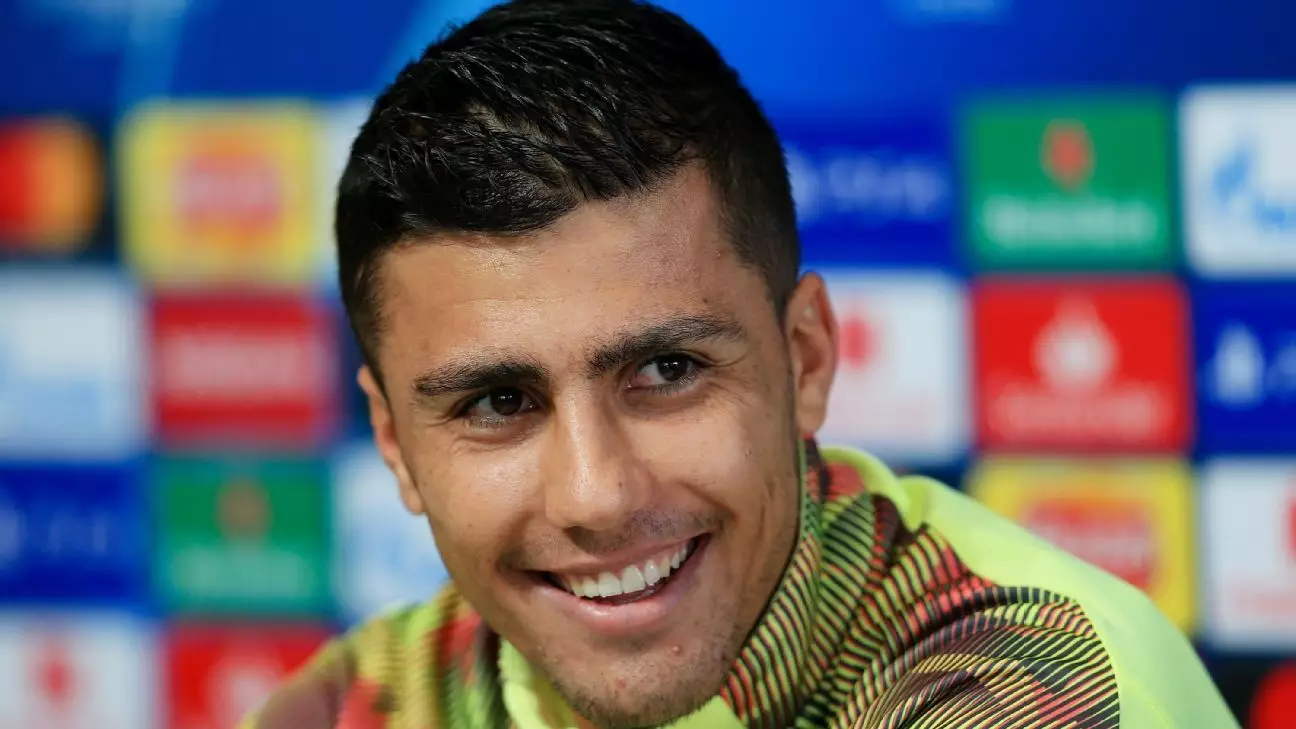In recent weeks, concerns over the escalating workload of professional footballers have reached a fever pitch, prompting the Professional Footballers Association (PFA) to take decisive legal action against FIFA. The crux of the issue is the increased fixture congestion, fueled by an ever-expanding calendar of competitions, including a revamped Champions League and the introduction of an enhanced Club World Cup. Manchester City midfielder Rodri has voiced sentiments that resonate deeply within the player community, stating that athletes are on the brink of striking due to preoccupying concerns about their physical well-being.
Rodri’s comments highlight an alarming predicament: last season, he played an astounding 63 matches across all competitions. With projections pointing to this season potentially stretching to an overwhelming 85 matches for key international players, the toll on both physical and mental health is irrefutable. The PFA president Maheta Molango underscored the urgency of this situation, asserting that not only are players feeling the strain, but it has become a pressing concern for the entire football ecosystem.
The growing frustration among players is palpable, with Rodri and others calling for operators of the game to pay heed to their concerns. Molango’s statement reflects a broader collective consciousness among players and unions regarding the current state of the game’s demanding schedule. She emphasizes that this is not merely an issue affecting individual players but rather a challenge that threatens the integrity of the sport itself.
This sentiment resonates with many in the football community, including prominent coaches and union leaders. Real Madrid’s Carlo Ancelotti and David Aganzo, president of the Spanish Players’ Union (AFE), have both reiterated the need for a re-evaluation of the calendar. Ancelotti specifically pointed to the correlation between player injuries and excessive game loads, insisting that if FIFA and UEFA do not act, the issue will only exacerbate.
This growing fatigue is not merely anecdotal; it has tangible implications for player performance and long-term careers. Players like Manchester City forward Erling Haaland have openly discussed how the sheer number of matches compromises their ability to perform at their best. Haaland’s comments following the Euro tournament indicated that players were visibly fatigued, questioning their sharpness and ability to compete effectively on such an overcrowded schedule.
Moreover, the situation is exacerbated by the imminent changes in competition structures. The announcement of additional matches in the Champions League and the Club World Cup has alarmed many players and stakeholders, who fear that the compromises to players’ health might soon pale in comparison to the financial incentives driving these changes.
LaLiga president Javier Tebas has joined the chorus of voices advocating for reform, signaling a critical junction in the football calendar where necessary action must be taken. He emphatically stated that the insistence on increasing match frequencies is detrimental not only to player health but also threatens the very foundation of the industry. These insights bolster Rodri’s warning that if working conditions do not improve, players may be left with no option but to strike.
The concern for player welfare transcends club and league loyalty; it speaks to a broader ethical issue in the game. If global football continues on its current trajectory towards unregulated fixture congestion, it risks sacrificing the quality of the game in pursuit of profit.
As players, coaches, and football administrators voice their concerns, the question remains: how can the footballing world come together to remedy this situation? Open dialogues and collaborative efforts between FIFA, UEFA, leagues, and players’ unions are essential in fostering an environment where player welfare is paramount. Football’s future hinges not only on the excitement of the matches but also on ensuring that those who play the game—its true essence—are prioritized.
It’s a pivotal moment to reshape the fabric of professional football. Will football authorities heed the calls for change, or will the beautiful game evolve into a demanding machine, relentlessly siphoning the joy and vigor from its most talented individuals? The stakes are high, and the world will be watching closely as the narrative unfolds, waiting for proactive solutions that honor the players and protect the integrity of the sport we cherish.

